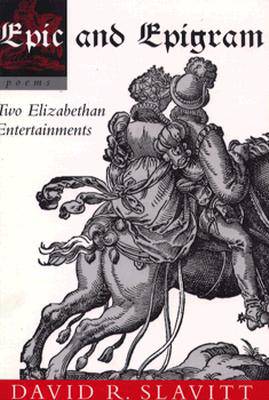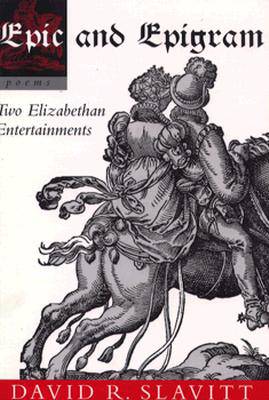
- Retrait gratuit dans votre magasin Club
- 7.000.000 titres dans notre catalogue
- Payer en toute sécurité
- Toujours un magasin près de chez vous
- Retrait gratuit dans votre magasin Club
- 7.000.0000 titres dans notre catalogue
- Payer en toute sécurité
- Toujours un magasin près de chez vous
27,95 €
+ 55 points
Description
David R. Slavitt's affectionate translations of epigrams by sixteenth-century Welsh academic John Owen transmute a careful selection of the writer's work into a vision of life, and in so doing bring Owen into conversation with the present day. Pithy, quick, favoring balance and economy over elaboration of style, the epigram is difficult in any language; that Owen mastered it in a language other than his own attests to his immense talent. Owen's small treasures go directly to the core: "At your coming into the world, you gave a cry / of protest: why then protest that you must die?"
Duessa's Version: A Dirge in Seven Canticles offers an irreverent and provocative recapitulation of The Faerie Queene, as told by Duessa, the mutable sorceress of Spenser's epic poem. Slavitt invests her with an unforgettable voice--outraged, profane, wise, and wickedly funny--and an exasperated contempt for the hero, Spenser's Redcrosse Knight. Duessa's retelling of The Faerie Queene becomes the scaffolding upon which Slavitt hangs his reflections on twentieth-century civilization and culture that are indebted at once to intelligent observation, to Spenser, and to Borscht Belt comedy. Here are virtuoso performances by a poet with resources of wit and erudition that are nothing short of astonishing. These masterly translations are bound "to get him--or at least his ghost--invited back."Spécifications
Parties prenantes
- Auteur(s) :
- Editeur:
Contenu
- Nombre de pages :
- 64
- Langue:
- Anglais
Caractéristiques
- EAN:
- 9780807121528
- Date de parution :
- 01-06-97
- Format:
- Livre broché
- Format numérique:
- Trade paperback (VS)
- Dimensions :
- 153 mm x 229 mm
- Poids :
- 136 g

Les avis
Nous publions uniquement les avis qui respectent les conditions requises. Consultez nos conditions pour les avis.






